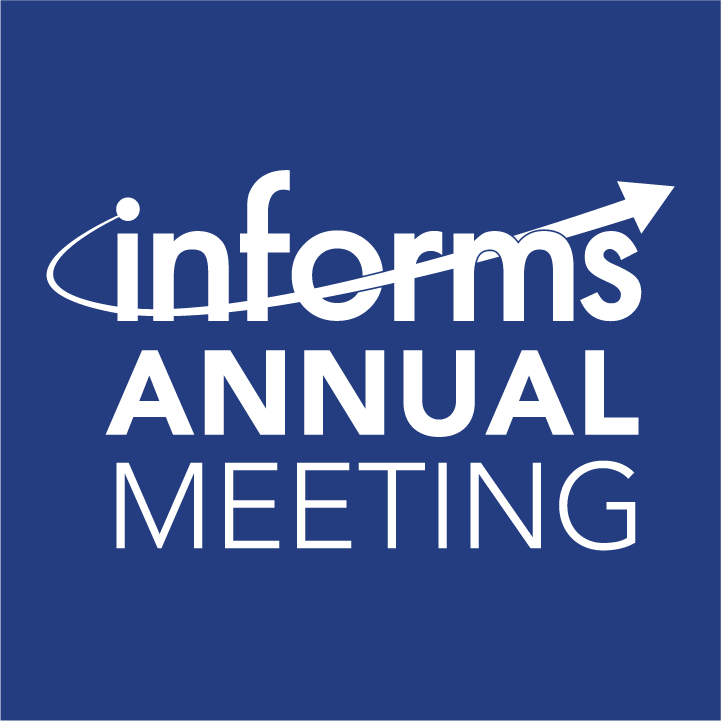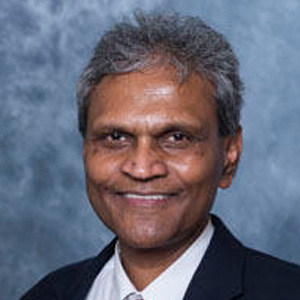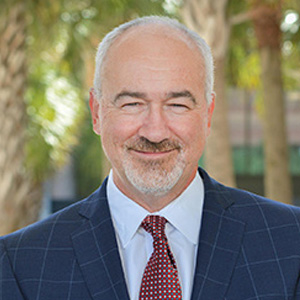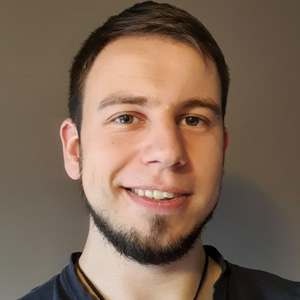
Koen Peters
How O.R. Helps the United Nations Deliver Food and Hope
After years of steady decline, global hunger is on the rise again. More than 309 million people are on the brink of starvation as conflicts escalate worldwide. This alarming increase in food insecurity is driven by the many concurrent challenges the world is facing: the slow post-COVID recovery of global markets, a rise in natural disasters, and deepening conflicts. The United Nations World Food Programme (WFP) has responded by placing Operations Research (O.R.) at the core of its emergency response, transforming humanitarian work. How can analytics be harnessed to combat the rising tide of global hunger? What does it take to apply these sophisticated tools in WFP’s complex operational environment? Through O.R., the WFP has not only streamlined food distribution, cutting delivery times significantly, but also provided a beacon of hope. As we confront these challenges, the continued innovation in O.R. is not just promising — it is a critical step toward a world without hunger.
MONDAY, OCTOBER 21, 9:45-10:35AM
Making the most of this AI Moment:
A Fireside Chat with Charles Isbell and Michael Littman
Interest in AI, which was already high, has reached a fever pitch since the release of ChatGPT two years ago. Fascination and fear abound, so how do we engage the public for the health of society to ensure AI is a force for good and not for harm? How do we broaden access to computing to shape its future? How can comedy and humor help? What roles should leading scientists take to best impact these issues? These are just a few of the questions to be discussed during this fireside chat, which longtime INFORMS member Cynthia Rudin will lead with two fellow computer scientists, who are excited to share their combined 60+ years of experience in AI and machine learning.

Moderator
Cynthia Rudin
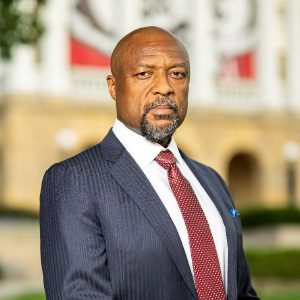
CHARLES ISBELL
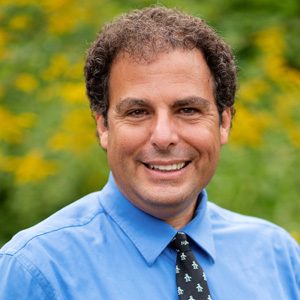
Michael Littman
TUESDAY, OCTOBER 22, 9:45-10:35AM
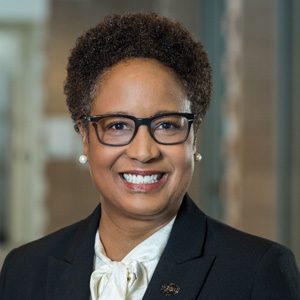
Harriet Nembhard
Preparing Interdisciplinary Leaders: Reimagine Your Department As A Place For Educating Future Operations Research Leaders Who Can Tackle Complex And Nuanced Problems
In the face of today’s multifaceted global challenges, the role of Operations Research (O.R.) is more critical than ever. This plenary will explore how academic departments can be transformed into incubators for future O.R. leaders who are adept at addressing complex societal issues through interdisciplinary approaches. Beginning with a personal narrative, the talk highlights the urgent need for integrating diverse perspectives in OR education and practice. Drawing from successful initiatives at Harvey Mudd College and real-world applications, we discuss strategies for embedding interdisciplinary thinking, enhancing curricula, and fostering collaboration with industry and community partners. Participants will gain actionable insights on aligning academic programs with strategic goals, promoting effective leadership, and preparing students to create impactful, innovative O.R. solutions that contribute to achieving the UN Sustainable Development Goals (SDGs). This session aims to inspire and equip O.R. educators and practitioners to reimagine their departments as dynamic environments for training the next generation of leaders capable of making smarter decisions for a better world.
WEDNESDAY, OCTOBER 23, 11:05-11:55AM
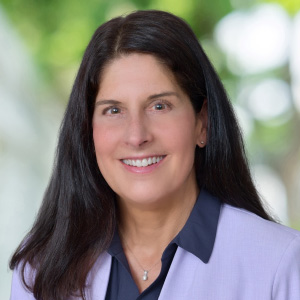
Ann Tracy
Reimagining a Healthier Future with Sustainable Supply Chains
Sustainability is rising as a priority on the corporate agenda, with increasing attention on supply chain, since this is where key contributions of a company’s carbon emissions occur including a focus on the upstream supply chain. Colgate-Palmolive is ranked as one of the best supply chains in the world, and that leadership extends to their innovation in sustainability. They developed the world’s first recyclable toothpaste tube and then shared the design with competitors in order to increase adoption. Join this plenary to hear how they are leading the way and learn about the real on-the-ground challenges they are tackling.
Keynotes
SUNDAY, OCTOBER 20, 5:25-6:15PM

University of South Carolina
2024 INFORMS UPS George D. Smith Prize
Reprise: University of South Carolina
The Management Science Department in the Darla Moore School of Business at the University of South Carolina supports both undergraduate and graduate programs in operations and supply chain and business analytics as well as a Ph.D. in operations management. The department couples classroom and real-world, experiential learning to produce top-notch graduates. The Operations and Supply Chain (OSC) Center, through which students have the opportunity to earn an industry-certified Lean Six Sigma Green Belt, plays a central role in this real-world experience and has, over time, become a focal point for identifying, developing and placing well-trained talent in many leading Fortune 500 multinational firms. The OSC Center faculty have executed 360+ capstone consulting student projects in more than 45 partner firms yielding more than 330 million dollars in recurring benefits.
The department is also home to the Moore School Data Lab, which assists students with statistics and data analytics courses, and to the Center for Applied Business Analytics, which provides training, academic challenges and curriculum support to students and faculty. Graduate programs include the Masters of Science in Business Analytics and concentrations in Operations and Supply Chain in the school’s various MBA programs. The department’s executive education programs have trained over 5,000 officers in the U.S. Army on the use of advanced data analytics.
Doctoral graduates from the Management Science Department are currently working as faculty members at institutions such as Penn State University, The Ohio State University, Florida State University, University of Colorado, and University of Tennessee, among others.
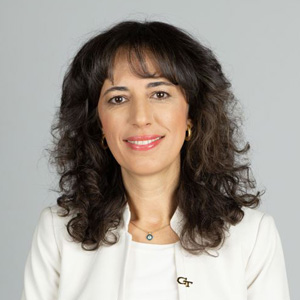
Pinar Keskinocak
Smarter Decisions Toward Preventing, Controlling, and Eliminating Infectious Diseases
Advances in science, medicine, and public health significantly improved our understanding of infectious diseases as well as their prevention and control; however, infectious diseases continue to have a devastating impact on the lives and livelihoods of millions people around the world. Global and regional changes in climate, human behavior, contact between human and wildlife reservoirs, and technology may further exacerbate the risk of infectious diseases. There are tremendous opportunities for analytics and operations research in combatting infectious diseases, especially in resource-constrained settings. We will discuss examples of how operations research and analytics can inform decision-making related to disease prevention and control, improve equity in access to resources and outcomes, and support efforts toward eradication.

David Shmoys
Philip McCord Morse Lectureship O.R. and analytics in support of democracy
Computational tools can now address (at scale) a wide range of decision-making elements of the democratic process. Perhaps the most well-studied of these is to construct (and evaluate) legislative districts for each state, a process dictated by the United States Constitution to recur every 10 years. Sixty years have passed since the first attempts at using integer programming (IP) – and a myriad of other methods – to provide “nonpartisan political redistricting by computer” (presented at ORSA/TIMS – INFORMS’ predecessor meeting – in October 1964).
This talk will briefly discuss several large-scale approaches made possible by both advances in IP and in computational power. Although these methods are effective, they provide opportunities to both achieve notions of fairness and to thwart such objectives. Innovative Markov Chain Monte Carlo (MCMC) methods have been introduced to provide a mathematical perspective to detect attempts at undermining fairness in the resulting districting plans. These have inspired randomized local search procedures to, among other objectives, achieve a desired number of majority-minority districts within a statewide plan, but it appears that tailored IP methods can also outperform these.
One counterproposal advocated by several “good government” NGO’s is to modify the current system to a “multi-member” one, where each (larger) district elects, for example, 3 representatives through a process of using ranked-choice votes with a mechanism called single-transferable voting. IP can again be used to analyze the impact of such a modified system, and demonstrates (at least at the first cut) that this change would both help to facilitate fair outcomes, and limit the power of those attempting to undermine such fairness. Finally, we will highlight the notion of a citizens’ assembly and sketch how OR tools can be (and are, in practice) employed to deliver on the promise of delivering a fair democratic system by this alternative approach.
There is a growing community of researchers contributing to these efforts, and we will provide a whirlwind tour of this burgeoning area.
MONDAY, OCTOBER 21, 5:25-6:15PM
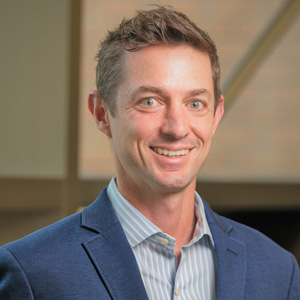
Thomas Sharkey
The Importance of Lived Experience for Better, Smarter O.R. Models to Disrupt Sex Trafficking
Given the complexity and range of experiences in human trafficking, research and practice in this space has the potential for unintended consequences. Even well-meaning research and action can cause great harms if based on fuzzy conceptualization, overgeneralizations, or incomplete data. This talk will demonstrate the importance of including experts with lived experience, commonly referred to as survivors, in creating O.R. approaches to disrupt sex trafficking. It will show how our conceptualization of sex trafficking became better (more accurate, attuned to context, and actionable) and how our O.R. models and analysis became smarter because of our inclusion of experts with lived experience as research partners. The talk will then discuss how the O.R. and analytics community can include people with lived experience in our community’s efforts to help disrupt sex trafficking.
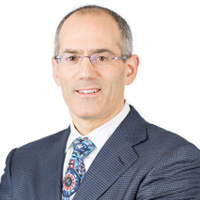
Steven Eppinger
OMEGA-RHO LECTURE
Adventures in Engineering Management
There are many interesting problems in engineering management for which network modeling and management science methods can be usefully applied – particularly where complex systems are involved. In this Omega Rho Distinguished Lecture, I will describe some problems addressed using Design Structure Matrix methods, challenges of Agile development for complex systems, and more..

CHUNG PIAW TEO
IFORS Distinguished LECTURE From Lotteries to Optimal Decision-making: Operations Research and the Theory of Moments
Lottery games, with their complex probabilistic structures and significant financial stakes, provide a fertile playground for Operations Research (O.R.) researchers. This talk explores the rich opportunities for applying advanced O.R. techniques to optimize various aspects of lottery operations, from ticket sales to payout management, and illustrates the broader implications for decision making in related fields. Through various real life case studies, we demonstrate how the study of lottery games can yield insights into human behavior, statistical anomalies, and effective risk management strategies. In particular, we show how mean-variance analysis, a core concept within the theory of moments, can be a powerful method in decision making within this sector. This method evaluates the trade-off between risk and return, providing a structured and quantitative approach to optimize decisions under uncertainty.
We also develop a general framework for the “picking winners” problem, aiming to select a small pool of candidate solutions to maximize the chances that one will perform exceedingly well in a combinatorial optimization problem, under a linear and additive random payoff function. This problem is formulated using a two-stage distributionally robust model with a mixed 0-1 semidefinite program, leveraging the Theory of Moments. This approach allows us to exploit the diversification effect to improve the chances of achieving a high ex-post payoff.
Applications of this framework in fields such as revenue management (offer construction) and fraud detection (credit rating) will be presented. Additionally, we demonstrate how this framework is connected to the field of explainable AI, enhancing transparency and trust in the decision-making process.
TUESDAY, OCTOBER 22, 5:25-6:15PM
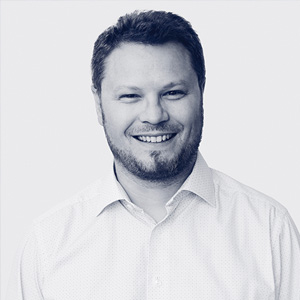
Pierre Pinson
Halfspace and Imperial College London, Copenhagen
2024 INFORMS franz edelman award REPRISE
Passenger Ferry Operations in the Digital Era: Forecasting & Revenue Management at Molslinjen
Halfspace and Molslinjen have partnered to develop and operate a successful forecasting and revenue management toolbox for data-driven operation of ferries in Denmark, rolled out operationally since 2020. This has resulted in $2.6-3.2M yearly savings and been a significant contributor to a 3% reduction in fuel costs and emissions. This toolbox relies on the latest advances in machine learning for forecasting and ORMS approaches to revenue management. The potential for generalizing to the global ferry industry is significant, with an impact on both revenues and ESG criteria.
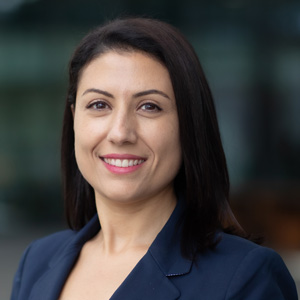
Tugce Martagan
OR/AI Applications in the (Bio)Pharmaceutical Industry: Vision and Future Research Directions
The application of Operations Research and Artificial Intelligence (OR/AI) methodologies has successfully helped transform several industries. However, there is still a significant need for more OR/AI research in the (bio)pharmaceutical industry. Until recently, competitive advantage in the (bio)pharmaceutical industry has been driven primarily by advances in life sciences. However, with increasing demand and competition, the industry is becoming more sensitive to cost efficiency, supply chain resilience, and equitable patient access to medicines.
In this presentation, we will reflect on how OR/AI applications can help advance the (bio)pharmaceutical industry. We will begin with an overview of current industry trends, needs and challenges. We will also discuss some examples from manufacturing and supply chain applications, based on our work presented in the 2022 Franz Edelman competition. Finally, we will propose a research roadmap and a portfolio of future research directions for OR/AI applications in (bio)pharmaceutical manufacturing.
